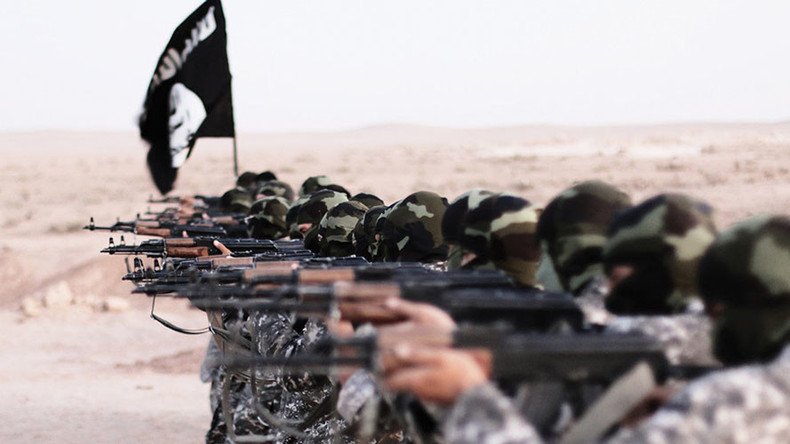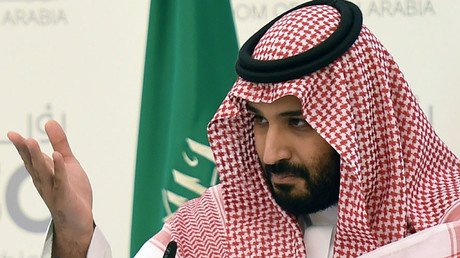Whitewash warning: Saudi-led ‘Muslim NATO’ teams up with major PR firm

Riyadh’s plan to muster a coalition of mainly Sunni Arab countries – ostensibly to fight ‘terrorists’ – appears to be a ploy to boost Saudi Arabia’s clout in the region following the crashing oil price that has hit the kingdom hard.
Last week the blueprint appeared to have shifted gear, as reports emerged of one the world’s leading PR firms scooping a contract to promote the grandiose project. The plan is expected to involve 41 countries from the farthest corners of the Muslim world as a means of combating ISIS in the Middle East and even as far as West Africa.
The so-called ‘Muslim Alliance' might go further than merely fighting ISIS and Al-Qaeda. Indeed, some fear it may be used to combat Houthi rebels in Yemen. Moreover, the choice to give the PR contract to Burson-Marsteller has also come under fire from human rights campaigners. They suspect the firebrand firm, which has a formidable footprint in the Middle East, will be expected to “whitewash” human rights atrocities in Yemen, allegedly carried out by Saudi Arabia and its allies, according to the London-based Arab news website Middle East Eye.
In December 2015, reports about a so-called ‘coalition’ said it was made up of 41 Muslim-majority countries extending beyond the Middle East including Pakistan and Sudan. The coalition has a mission to combat Islamic State (IS) groups both in Iraq and Syria, as well as hit Islamic extremists in general across Northern and Western Africa.
The group, made up largely of defense ministers, which models itself on NATO, is preparing to meet soon, so it’s important that it gets its messages to journalists in order. Indeed, a controversial Saudi general appears to have already justified single-handedly why the Saudis need a top notch PR firm to manage the polemic of Saudi intervention in the region.
Saudi Major General Ahmed Asiri, one of the architects of the alliance and is the subject of a preliminary war crimes investigation in the UK, recently told the Wall Street Journal that the alliance could target Houthis in Yemen.
"All countries will put effort into combating terrorism in the member countries, regardless of the nature of the terror groups. That is the main goal,” explained Asiri. "Each country has its own expertise that it can contribute to the coalition.”
Not everyone, however, shares that sense of optimism.
Tannous Mouawad, a retired Lebanese Army General, is skeptical about its objectives and underlines a point many in this region make: a Sunni-led organization will not easily target Sunni extremists groups.
“Saudi Arabia’s enemy is more Iran, so many members will feel that hitting ISIS or Al-Qaeda will only boost Iran’s strength,” he told me in a telephone interview. “Since 2015 this organization has been useless … and this is largely because any Sunni organization has to have Egypt as a member, as Egypt is the backbone of the Arab world, but it doesn’t want to be part of it as it wants better relations with Russia."
Journalists indoctrinated in Dubai
Burson-Marsteller worked for Saudi Arabia in the aftermath of the 9/11 attacks in the US in 2001 and has offices both in Saudi Arabia and Dubai. Many will argue that it is not in the Middle East where Saudi Arabia needs pro-active public relations as most media in the Gulf Arab world is so blinded by its own dogma when reporting on the kingdom that it can barely see beyond Riyadh’s version of the truth on any given subject. Some ‘news’ outlets based in Dubai even go to the next level on reprinting fake news, fed to them by loyal subjects who work for Saudi news outlets, like this piece by Newsweek’s Dubai franchise, which astonishingly claimed in 2015 that the kingdom was expanding its influence in the region and, contrary to what all analysts claimed – that is, that the kingdom was broke – that Riyadh was, in fact, on a roll.
Apparently, news from the best economists in the world – that the country was entering into a financial crisis and would be eating into its cash reserves, thus forcing drastic cuts in the public and private realms – didn’t quite reach the editor of that particular esteemed journal.
In reality, Saudi Arabia does not have the geopolitical clout that it had just a few years ago; it doesn’t even have the money to pay the salaries of migrant workers which it shamefully kicks out of the country. So how does Newsweek arrive at this preposterous conclusion that Riyadh is expanding its hold on the region? Indeed, the very creation of the ‘Muslim Alliance’ which outsources – both financially and militarily - what the kingdom would have done once itself is a startling indictment to how Saudi Arabia has become a shadow of itself.
So with that kind of astonishing call-center journalism, quite the norm in the UAE where most media is so indoctrinated by Saudi Arabia’s ideas and fake news that their journalists write them up as facts, why employ one of the world’s best PR outfits? Simply because the real targets of this campaign – Western journalists in London, Washington, and the Belgian capital – are the ones being ‘converted’ to this indoctrination.
Brussels will be ripe for spoon-feeding journalists with tomes of ‘alternative facts’ about Yemen. And who could blame Burson-Marsteller if those same journalists require briefing on Syria?
The firm also has a remarkable track record as a leading PR and communications outfit in Brussels, a throbbing epicenter of fake news where hundreds of international journalists each day re-spin EU press releases without fact checking the claims made in them.
BM punches above its weight on two fronts there: both as an advocate of the EU project and its importance, and also as a paid lobbyist of multinationals who manipulate MEPs in the European Parliament by writing their own amendments to draft legislation – rules which invariably favor massive companies over smaller firms which get hit hard by new EU laws. Like many consultancy businesses in the Belgian capital though it is also is part of the murky, corrupt world of lobby firms which benefit from EU support, often indirectly through EU tenders.
BM has the track record of working alongside and sometimes for large, powerful geopolitical organizations. Previously working with Saudi Arabia distancing the kingdom from the 9/11 terror attacks has shown it is prepared to take work from some of the world’s worst abusers of human rights. Indeed, the Muslim Alliance itself has a dazzling line up of countries which human rights groups regularly blast for crimes against humanity. It is headed by a former Pakistani army chief, Gen Raheel Sharif, and is made up of Nigeria, Turkey, Egypt, Bahrain Mali, Chad and even Somalia.
The Muslim Alliance or ‘Muslim NATO’ is largely an exercise in the continuation of a fantasy, a grand illusion that media in Gulf Arab countries have been assisting Riyadh with for years: that Saudi Arabia is still hugely powerful and has the capability of being a real game changer in many of the countries which are influenced and supported by Iran. Whether this PR success story in the Gulf can be exported across the world is anyone’s guess, but if the New York Times can publish the conspiracy theories of a former British MP, then Burson-Marsteller will no doubt be knocking on an open door when they offer journalists in Washington, Brussels, and London the fake news from Riyadh. Alternatively, those same journalists could simply buy a copy of Newsweek Middle East.
Burson-Marsteller was contacted by the author to provide their comments for this article but declined.
The statements, views and opinions expressed in this column are solely those of the author and do not necessarily represent those of RT.














